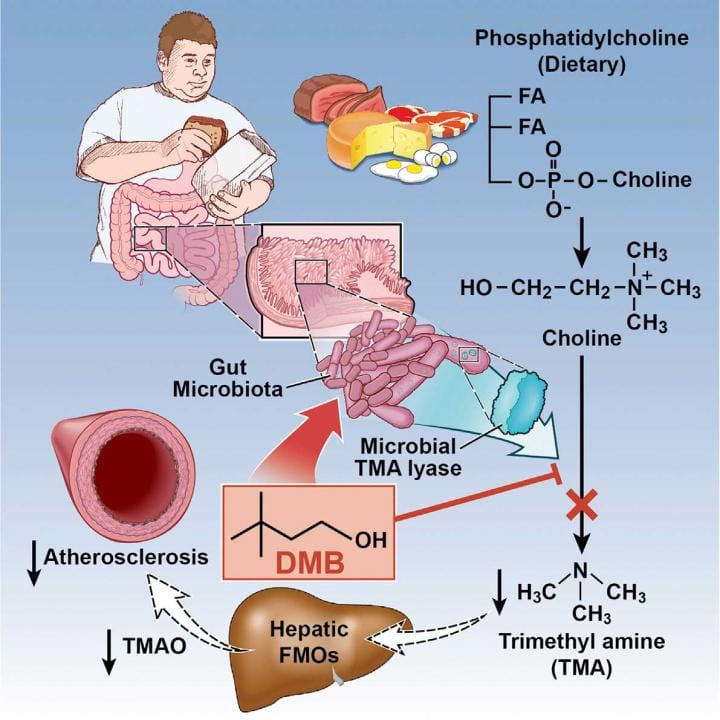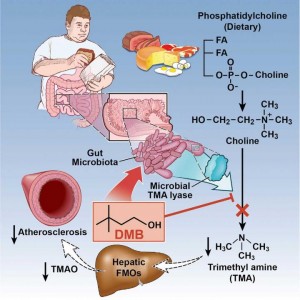Targeting Our Gut Microbes Could Cure Arteriosclerosis

Researchers from Cleveland Clinic have discovered that blocking a specific microbiome metabolic pathway can diminish the risk of arteriosclerosis for the host. A compound found in olive oil and red wine interferes with the gut microbiota’s metabolism, lowering the levels of bacterial metabolic by-products that contribute to hardening arteries and increase the risk of cardiovascular diseases. The study has been published in the journal Cell.
Arteriosclerosis is linked to the presence of high amounts of choline and carnitine in the blood. These two compounds are abundant in meat and fat dairy among other foods. Microbes in our guts have an enzyme, TMA lyase, that catalyzes the transformation of choline and carnitine into trimethylamine (TMA). TMA is processed in the liver, where it is transformed in trimethylamine N-oxide (TMAO), which is responsible for the harmful build up of matter lining the inside of arteries that causes their hardening. In the past, a common strategy consisted in blocking the TMA to TMAO transformation, but this led to a dangerous accumulation of TMA in the body and damaged the liver.
Treating a host by blocking its microbes’ metabolism
The team of researchers from Cleveland Clinic, led by Stanley Hazen, decided to impede TMAO formation by blocking a previous metabolic step. Instead of obstructing the synthesis of TMAO, they decided to prevent the transformation of choline in TMA. This meant targeting the gut microbes, responsible for the formation of TMA lyase. They performed a screening for TMA lyase inhibitors and found a molecule called 3,3-dimethyl-1-butanol (DMB). DMB was administered to mice genetically susceptible to suffer from arteriosclerosis and fed a choline-rich diet. The results were very positive: mice showed decreased TMAO levels and arterial plaque formation was prevented. No toxic effects for the mice were observed. Besides, DMB didn’t kill the microbes, which is crucial for not increasing DMB resistance in the bacterial population.
The study will be replicated in humans. If the results of clinical trials are positive, DMB could be supplemented to patients in the diet. The study reinforces the importance of eating well and uncovers one of the molecular mechanisms by which the mediterranean diet exerts its positive effects.
Source: Cleveland Clinic

